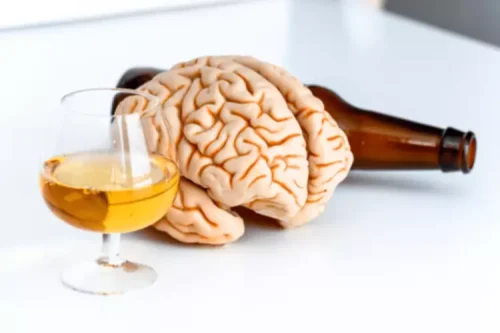Sober living
The Symptoms of Wet Brain From Alcoholism: What Are They? Delphi

Other researchers, however, believe the two conditions are actually different stages of the same syndrome. In this case, Wernicke syndrome is the initial, acute, shorter phase with more serious symptoms. Korsakoff syndrome then indicates a chronic and long-lasting disorder. First, neurological symptoms, such as vision problems and problems with muscle coordination, usually present themselves. Impaired mental functioning, such as memory loss, typically follows. Again, a wet brain occurs following a severe deficiency of vitamin B1 in your system.
How Does Wet Brain Occur?
“Wet brain” is a term used to describe the chronic brain disorder, mush brain Wernicke-Korsakoff syndrome or Korsakoff’s psychosis. Yes, the wet brain (Wernicke-Korsakoff syndrome) comes on suddenly, especially in its early stage, Wernicke encephalopathy. The onset of wet brain occurs rapidly due to severe thiamine (vitamin B1) deficiency caused by chronic alcohol abuse. This deficiency affects the brain’s ability to function properly. Cirrhosis, pancreatitis, and cardiovascular disease are some of the more common damaging effects of chronic alcohol abuse, but wet brain is also one of the lesser-known effects of alcohol addiction.

How Is Wernicke-Korsakoff Syndrome Treated?
Though treatable, if the condition goes too long without treatment or is misdiagnosed and incorrectly treated, it can permanently affect memory loss. While timely treatment involving thiamine replacement, proper nutrition, and hydration can reverse most symptoms of Wernicke’s encephalopathy, improvement in memory function is often slow and incomplete. It is important to note that thiamine supplementation should continue until the patient is no longer at risk, such as as long as they are consuming alcohol. Allergic or anaphylactic reactions to thiamine are rare, and the overall incidence does not warrant significant concern.

Wernicke-Korsakoff syndrome is a condition that often goes unnoticed until the damage is irreversible
- While detoxing is a crucial first step in the recovery process, it can be part of a larger, comprehensive plan that addresses the physical and psychological components of addiction.
- Researchers have yet to agree upon whether Wernicke syndrome always comes before Korsakoff syndrome and, therefore, indicates some sort of cause-and-effect relationship.
- Without proper treatment and management, the condition can lead to permanent disability and, in severe cases, can be fatal.
- Alcohol makes it harder for your body to absorb thiamine and store it in your liver.
The risk is compounded by factors such as poor nutritional intake, which is common among those with alcoholism. The key indicators of Wernicke-Korsakoff syndrome include frequent confusion, memory loss, and balance issues. These symptoms help answer the question, “How do you know if you have a wet brain? ” Early detection and treatment are crucial to prevent permanent damage.
Second Stage – Korsakoff Psychosis

Negative reactions to receiving vitamin B-1 may vary, and can include alcohol withdrawal symptoms such as insomnia, sweating, or mood swings. The best ways to protect yourself against the irreversible effects of wet brain are to monitor your alcohol use and ensure you are getting a sufficient amount of vitamin B1 in your diet on a daily basis. The primary symptoms of the wet brain can be broken down into two categories since it is really the occurrence of two separate syndromes. Symptoms will vary depending on which syndrome is experienced first or most predominantly. For those seeking help, New Jersey offers alcohol detox and addiction treatment solutions, providing comprehensive support and resources for individuals struggling with alcohol use disorder and Wernicke-Korsakoff Syndrome. In serious cases, it can cause brain damage and lead to problems with memory and your walk that don’t go away.

Maintain a Balanced Diet
Our drug & alcohol treatment center offers clients access to detoxification at our partner facilities, along with partial day, IOP and outpatient rehab. To prevent these permanent brain changes from occurring, a person must receive medical treatment for Wernicke-Korsakoff syndrome. It occurs when a person with thiamine deficiency continues to intake carbohydrates, either on their own or by giving glucose in a medical setting, without awareness of a thiamine deficiency.
- Those who struggle with alcohol use disorder, though, are at risk of thiamine deficiency.
- Any improvement in functioning usually occurs within the first two years after the symptoms began.
- These interventions aim to improve overall health, enhance cognitive function, and minimize the risk of further complications.
- Symptoms of this stage of wet brain include impaired memory and learning abilities.
- The most common risk factor for Wernicke-Korsakoff Syndrome is alcohol abuse, but it can also be triggered by AIDS, cancer, chronic infections, kidney dialysis, and anorexia.
Recovery Coaching
People who have difficulty controlling their alcohol use often begin to neglect their other needs as their disease progresses. Treatment for Wernicke-Korsakoff syndrome primarily involves thiamine supplementation, which helps to address the underlying thiamine deficiency. Traditional regimens in the United States have typically used 100 mg of parental (intravenous or intramuscular) thiamine for 3-7 days, followed by oral thiamine indefinitely as long as the patient is consuming alcohol. Access to timely treatment, ongoing support, and a comprehensive approach are vital for individuals affected by this condition.
- Chronic thiamine deficiency due to prolonged alcohol abuse leads to neurodegeneration, particularly in areas of the brain responsible for memory and learning, such as the thalamus and mammillary bodies.
- When left untreated, WKS worsens, leading to severe amnesia, disorientation, and irreversible brain damage.
- It is important for individuals at risk, as well as their loved ones, to be aware of the potential consequences of heavy alcohol consumption and malnutrition.
- The excessive consumption of alcohol can cause a deficiency of thiamine, or vitamin B1, which is an essential vitamin for the proper functioning of the brain and body.
- It’s difficult to know how common Wernicke-Korsakoff syndrome is, as research indicates that it is significantly under-diagnosed.
How to Treat Wet Brain
Abstaining from alcohol completely while receiving treatment for wet brain is vital for a full recovery. Abstinence should persist even after making a full recovery from the condition. Early diagnosis and treatment can reverse some of the symptoms of Wernicke’s encephalopathy, which is the first stage of the condition. Wernicke said encephalopathy can be treated with thiamine tablets or injections, IV fluids and nutritional support.


